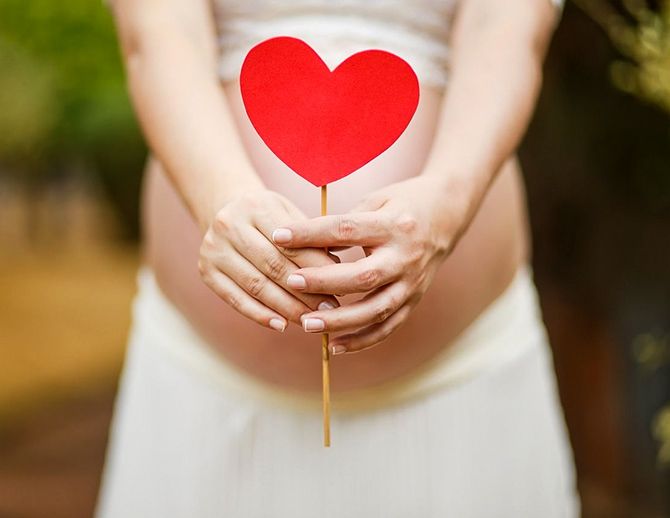Is it a myth that delivering a baby in your late 30s can be a tedious task?

Photographs: Photograph: Courtesy 3907349/Pixabay.com
India is projected to become the youngest country by the year 2020 and overtake even China in this regard.
In this era of increasing urbanisation and women embarking on careers, family planning has taken a backseat.
More and more women are opting for late marriages and putting off starting families to even later.
Just as planning pregnancy in a very young age is considered risky for the female's life and also unborn child, so is pregnancy at an advanced age (above 35 years), that can lead to more complications both in the mother and the child.
It is extremely essential for all women to be aware that the biological clock is actually a reality. Postponing parenthood can cause serious problems.
'Women are delivering healthy babies throughout their 30s and beyond.
'The age of 35 is simply an age that certain risks become more worthy of discussion.
'The biggest drawback of getting pregnant in your late 40s is it's harder to get pregnant.
'Eggs supply decreases significantly with your age, and older eggs are more likely to have chromosomal problems, raising the risk of miscarriage and birth defects.
'40-year-old women treated for infertility had a 25 per cent chance of getting pregnant using their own eggs,' said Dr Ritu Sethi, Consultant, Obstetrics and Gynecology, Columbia Asia Hospital, Gurugram.
'In your 40s, you're far more likely to develop problems like high blood pressure and diabetes during pregnancy as well as placental problems and birth complications
'Women older than 40 are more likely to deliver a low-birth-weight or preterm baby.
'At 40, the chance of conceiving within a year is about 40 to 50 per cent, compared with a woman in her mid 30s, who has a 75 percent chance.
'By age 43, a woman's chance of pregnancy plummets to 1 or 2 per cent,' she added.
Sethi further said that more and more women are now opting for fertility treatments as chances for natural conception also decrease dramatically with age.
Thus, couples resort to fertility treatments meant for both men and women.
This initiative has proven to be fruitful and given hopes to millions of childless couples.
But this process is more cumbersome and complicated than the natural way of reproduction, with possibilities of unsatisfactory outcomes.
'Another trend in women is to go in for freezing of their eggs.
'These eggs are frozen at a young age (so that ageing process in limited) and can be thawed (defrozen) at a later age when the woman wants to plan pregnancy, so that the effects of age do not come into play. But the flipside is that treatment is quite costly and patient can conceive only through in vitro fertilization (IVF), which again has low success rates,' said Dr Pooja Mehta, Sr Consultant, Obstetrics and Gynecology, Paras Hospitals, Gurugram.
The onus of having a child does not depend solely on women. With booming population and a serious hike in expenses in the coming decades, it has become challenging to provide for a child, let alone 5-6 children.
Considering the same, not only getting pregnant at an older age (mid thirties) may be a tedious task, but also carrying the pregnancy so that a healthy baby is delivered might also seem an uphill task.
At the end of the day, the right to give birth or postpone a pregnancy is entirely an individual's choice.
Therefore, it is advisable that a lady in her late 20s at least starts thinking about her reproductive goals and plans a pregnancy in the early 30s.










